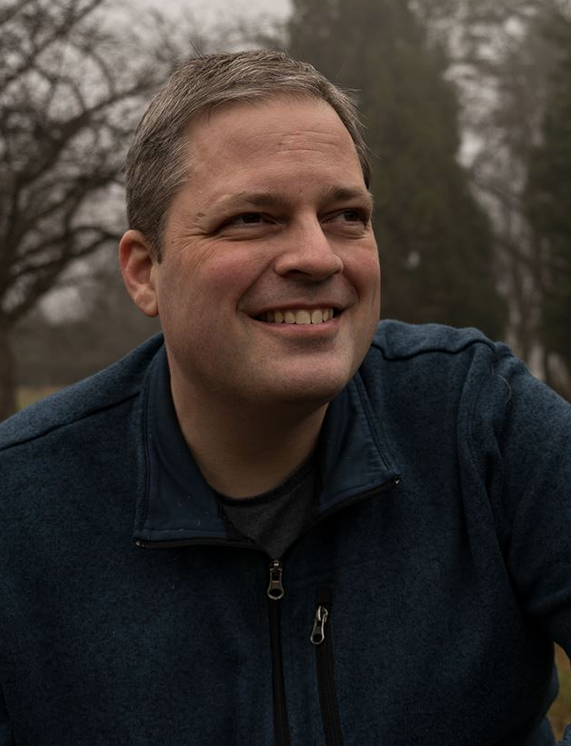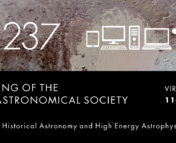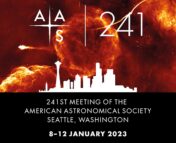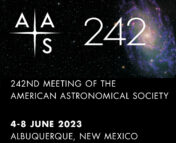In this series of posts, we sit down with a few of the keynote speakers of the 242nd AAS meeting to learn more about them and their research. You can see a full schedule of their talks here, and read our other interviews here!

Thousands of exoplanets have been discovered so far. As more and more planets are discovered, astronomers are searching for those in the habitable zone of its star in our search for life on other planets. This habitable zone is mainly defined as the region where the temperature is just right for liquid water to be on the planet’s surface. But can we learn if these planets have the right ingredients for life to occur?
This quest to understand whether the right ingredients are available on potentially habitable planets is the main focus of plenary speaker, Dr. Klaus Pontoppidan, who is an associate astronomer and a JWST Project Scientist at the Space Telescope Science Institute. Through his work, he aims to use infrared facilities such as JWST to study how planets form and how their chemical inventories evolve over time. This will greatly improve our understanding of these planets.
Pontoppidan has been interested in physics and astronomy from a young age. Growing up in Denmark, he was able to get a free education and pursue his dream of becoming a scientist. He pursued his bachelor’s degree at the University of Copenhagen, where he learned about the Next Generation Space Telescope, which eventually turned into JWST. Dreaming of working on a flagship mission in his career, he then pursued his PhD at Leiden University. There he met his mentor Dr. Ewine van Dishoeck, who set him on what was ultimately his career path of astrochemistry. “She had a huge impact on my career, which I’m extremely grateful for”, says Pontoppidan. After graduating from his PhD, he was awarded a NASA Hubble Postdoctoral Fellowship to work at Caltech with Dr. Geoffrey Blake, whom he had done research with during his PhD in an exchange program between the institutions. After applying to jobs, he landed at the Space Telescope Science Institute, working on the NIRSpec Team and the MIRI Team as an Instrument Scientist. He helped develop important tools such as the Exposure Time Calculator (ETC). He eventually was promoted to JWST Project Scientist.
Through his work at Space Telescope Science Institute, he is interested in using our Solar System to understand other planetary systems. As Pontoppidan says, “… the Solar System: we have it right here, we can pick it up and hold it in our hands”, which allows astronomers to study and understand our Earth and other planets in great detail. He is looking for answers to questions such as whether our Earth is an “oddball,” or is it typical? Pontoppidan mentions that “the answer to that is very profound”. In the quest to answer such questions, the speaker uses infrared telescopes, both space- and ground-based, to understand the chemical inventories of planet-forming disks and how they influence the planets themselves.
As Pontoppidan reflects on his journey, he reminds us that there is “so much of success that’s about not giving up” and to “… keep the goal ahead of you”. He says that “it’s a kind of perseverance in spite of setbacks” that has driven his success, and advises current students to not give up. However, he does acknowledge that “it seems like a very different world to me than when I was a student” and recognizes the impact that technology and social media has made in careers and society in general. He reflects about the long-lasting effects of public social media in these times and how that can put pressure on younger generations.
To learn more about Pontoppidan’s work, check out his talk on “The Origin of Rocky Planets and their Atmospheres: A Rhapsody in Infrared” at 4:40 pm on Wednesday, June 7th at #AAS242!
Astrobite Edited by: Alison Crisp
Featured Image Credit: The American Astronomical Society



